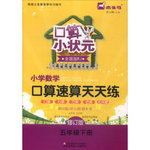题目内容
After I made it to the city center, I started to feel it might be easy for a foreigner to deal with the great size of Beijing. With growing confidence, I decided to take the subway to the hotel, not realizing that the network didn’t go that far. Impressed with the cleanliness of the station, I bought a ticket and boarded the first train that came along.
After a few minutes I asked in English of course a young man seated next to me where I should get off closest to the Friendship Hotel. Wearing a smart business suit and tie, he would surely speak English, wouldn’t he? Unfortunately, he couldn’t understand me but seemed very friendly. I showed him the room card with all the information of the Friendship Hotel in Chinese characters. He looked at it, and then his eyes moved quickly to the carriage (车厢) subway map. Next, he raised three fingers of his right hand.
In Australia, raising fingers at someone is not usually nice, but this man wasn’t smiling. At the next station he showed me two fingers. Now in Australia, that’s really rude, but I got the message. When we stopped at the third station, he didn’t just point to the door, but got up, took me out of the train, and led me to the top of the stairs, and out onto the street. Then he stopped a taxi and told the driver where to take me.
All this came from a man who couldn’t speak my language, and I couldn’t speak his. I was now speechless, especially when he refused my offer of money. I felt a little embarrassed having even thought he would accept a tip.
This experience made it clear I had to learn some Chinese quickly or my adventures might start turning into bad luck.
1.The author decided to take the subway because ________.
A. he lived near the city center
B. the network covered most of the stops
C. he believed in his ability to deal with the trip
D. he had a good impression of its cleanliness
2.Having been shown the room card, the young man_________.
A. understood the author well
B. still remained puzzled
C. answered the author directly
D. pointed at the subway map
3. Which of the following can’t be used to describe the young man?
A. helpful B. rude
C. warmhearted D. caring
4.The author’s purpose of writing this passage is mainly to ________.
A. prove the importance of being careful
B. appreciate the kindness of the young man
C. complain some cultural misunderstanding
D. describe one of his adventurous experiences
1.C
2.A
3.B
4.D
【解析】
试题分析:文章阐述了一次一个不会说汉语的澳大利亚人在北京乘坐地铁到酒店时冒险的经历。不会说汉语作者坐地铁出门。作者询问了一个不懂英语的年轻人,期间发生了一些事情使作者决定努力学好中文。
1.细节理解题。根据“With growing confidence, I decided to take the subway to the hotel, not realizing that the network didn’t go that far.”可知作者是出于自信才决定乘坐地铁,故选C。
2.2】细节理解题。根据第二段“I showed him the room card with all the information of the Friendship Hotel in Chinese characters. He looked at it, and then his eyes moved quickly to the carriage (车厢) subway map. Next, he raised three fingers of his right hand.”可知,当作者展示房卡后,年轻人快速看了一下车厢的地铁地图,并且伸出了右手的三根手指头。因此年轻人理解了作者的意思。故选A。
3.3】观点态度题。A给予帮助的;B粗鲁的,没礼貌的;C热心肠的;D有爱心的。根据第二段“In Australia, raising fingers at someone is not usually nice, but this man wasn’t smiling. At the next station he showed me two fingers. Now in Australia, that’s really rude, but I got the message.”以及第四段“was now speechless, especially when he refused my offer of money. I felt a little embarrassed having even thought he would accept a tip.”可知作者描述了年轻人在作者不知道路以及语言不通的情况下对他细致的帮助,说明年轻人一系列优点,因此不包括粗鲁的。故选B
4.4】主旨大意题。由本文可知,作者描写了自己不会汉语的情况下在北京外出,最后不知道路,询问一个年轻人,在年轻人帮助下打的回到酒店的事情。根据最后一段“This experience made it clear I had to learn some Chinese quickly or my adventures might start turning into bad luck.”总结可知,作者描述了自己一件比较冒险的经历。所以选择答案D。
考点:生活类短文阅读

 口算小状元口算速算天天练系列答案
口算小状元口算速算天天练系列答案